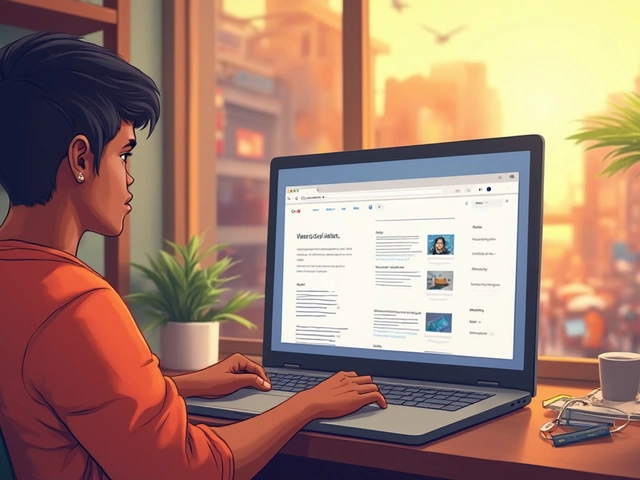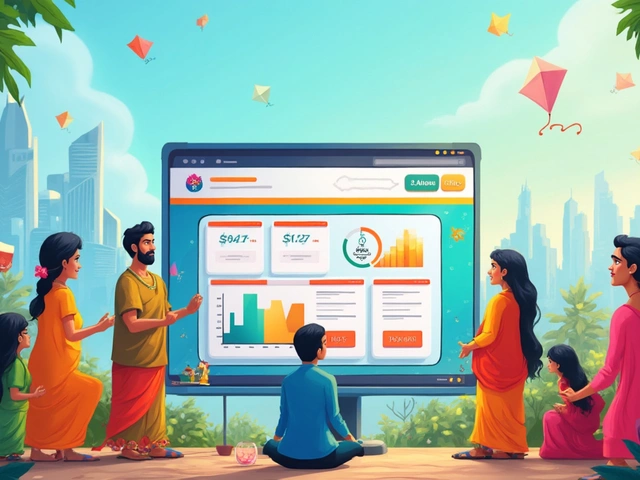You’d think SEO is rocket science judging by how much hype surrounds it. Tools with dashboards that look like airplane cockpits. Agencies tossing around big promises (for bigger bucks). It can leave you feeling like you need a computer science degree or a spare $10k to have a hope in Google’s search. Here’s the shocker: most of the work done by paid consultants is absolutely doable on your own. With time, patience, and a clear plan, you don’t need to mortgage your house—or your sanity—to make real progress.
Why So Many People Want to DIY Their SEO
Ever Googled something strange and found a random personal blog at the top? Or noticed that local plumber’s tiny site leapfrogged national brands? That’s not magic. That’s DIY SEO in action. Most people start doing search optimization themselves out of necessity—not some burning love for HTML tags or keywords. Hiring an agency might mean spending more than you even make from the site. Plus, there’s the control-freak factor. When you own every word, you aren’t left wondering what’s being done behind the scenes.
The tools available now really level the field. Ten years ago, SEO felt shrouded in mystery, with pros guarding ‘secrets’ that sounded way more complex than they were. Now, everything is a Google search away. From keyword research to technical audits, affordable (even free) website plugins or browser tools can walk you through the process step by step. WordPress’s Yoast SEO, Google Search Console, and browser plugins like Keywords Everywhere make complex tasks doable for a solo operator. The learning curve is still real—bad habits and SEO myths are everywhere. But for patience and a bit of trial and error, the doors are wide open.
Certain types of sites are just tailor-made for self-service. If you’re running a personal blog, a niche website, a brick-and-mortar small business, or a hobbyist project without much competition, you absolutely can handle SEO by yourself. Sites with thousands of pages, multinational ambitions, or heavy e-commerce integrations start to push into ‘call-an-expert’ territory, but the basics still apply everywhere.
The Building Blocks: What DIY SEO Really Covers
Let’s get specific. “SEO” is just a catch-all. The nuts and bolts come down to a few main jobs. If you can tackle these, you’re handling 80% of SEO:
- Keyword Research: Finding the words people actually type into Google to find what you offer. Tools? Google Keyword Planner (free), Ahrefs (paid), or Ubersuggest (freemium). Most people make the mistake of only targeting the most obvious keywords. But did you know, according to Ahrefs, 92% of all keywords get less than 10 monthly searches? That’s where small websites can shine: long-tail keywords, which are specific and less competitive.
- Content Optimization: Making sure your posts answer the questions people have—clean, readable, and full of useful info. Plug those keywords in naturally. Pro tip: Google’s BERT update means stuffing exact matches hurts more than helps. Write for real people, first and always.
- On-Page Technical Tweaks: Writing basic meta titles and descriptions, adding helpful headings, and making sure your images are labeled with relevant ‘alt’ text. Site structure, internal linking, and mobile-friendliness all play a massive role. Google announced in 2023 that nearly 65% of all traffic comes from smartphones, so mobile usability isn’t optional anymore.
- Link Building: The biggest sticking point for DIYers. Earning inbound links (think: recommendations from other websites) is hard, but you can start by listing your site in relevant online directories, guest posting on related blogs, or sharing your content in active forums and communities. Just don’t burn yourself out—consistency wins over risky shortcuts every time. Spammy links still get you punished, not promoted.
- Tracking & Tweaking: Using Google Analytics and Google Search Console to see what’s working (and what’s not). Track clicks, ranking positions, and which pages bring in visitors. React accordingly—maybe your “About Us” page draws unexpected traffic, so you add a call-to-action there.
All these steps are accessible for a one-person team. Each tool and plugin has tutorials tailored for beginners. The secret sauce? Patience. Expect to need months for any real movement. Sites rarely jump from page 10 to page 1 overnight (if they do, it’s luck or a search algorithm hiccup).

Common DIY SEO Pitfalls and How to Dodge Them
It’s easy to get excited, make changes you read about online, and then panic when results lag. Most DIYers trip up in a few familiar places:
- Chasing Magic Formulas: There are no guaranteed hacks. Anyone claiming to have ‘insider’ secrets is probably blowing smoke. Google changes its algorithm around 500 times a year. Nobody can outsmart the system forever. Best practices are your safest bet.
- Ignoring Site Speed: Nobody waits for a slow site. Studies by Google found conversion rates drop by 12% for every extra second a page takes to load. Compress your images, choose a fast host, and drop the fancy effects if they make your page crawl.
- Keyword Stuffing: It’s tempting to mash your keyword into every line on the page, but search engines want natural content. In 2025, AI tools like Google's RankBrain spot over-optimization instantly. Think ‘topic coverage,’ not just repetition.
- No Keyword Strategy: Jumping straight into content without a plan means you’ll end up competing for the wrong terms. Start with phrases where you stand a chance—like “DIY SEO for indie blogs” instead of just “SEO.”
- Neglecting Old Content: New posts are exciting, but search engines value fresh, updated content. Every few months, review your top pages and refresh statistics, fix broken links, and improve what’s already getting clicks.
- Not Optimizing for Mobile: With over half of global traffic on phones, mobile optimization isn’t just a bonus—it’s table stakes. Google’s Mobile-First Indexing means your site performance on mobile devices directly affects ranking.
- Never Asking for Feedback: Friends, customers, and even other bloggers see things you might miss. Fresh eyes can spot usability issues, broken pages, or awkwardly worded titles.
Here’s a quick reference table with common DIY mistakes compared to best practices:
| Mistake | Do This Instead |
|---|---|
| Keyword Stuffing | Write naturally, use variations |
| Ignoring Analytics | Check Google Analytics weekly |
| Skipping Mobile Tests | Preview on multiple devices |
| Chasing Vanity Metrics | Focus on relevant traffic |
| Neglecting Old Posts | Update old content regularly |
| Not Linking Internally | Connect related pages |
Getting Real: The Limits of DIY SEO and When It’s Time to Get Help
Not all challenges are fun. At a certain point, every SEO beginner hits a wall—usually with technical snags or fierce competition. Here’s how to spot those moments:
- If your site gets hit by a Google penalty and suddenly disappears from search results. Those algorithm updates (like ‘Helpful Content’ in 2023) are ruthless if you’re caught using shady tactics or duplicate content.
- Major technical problems, like crawling errors, server misconfigurations, or repeated security issues. These get complicated fast. Sure, there are plugins to help, but fixing deep code bugs or site architecture drama often needs a professional.
- Entering a hyper-competitive niche. Ranking for ‘best credit cards’ or ‘web hosting’ as a new site? The big brands have armies of experts. You can still carve out long-tail wins, but don’t expect miracles against banks or massive e-commerce shops.
- Scaling from a blog or simple site to a complicated shop, directory, or media platform. Suddenly, you need advanced schema, technical SEO audits, multilingual sites, or local SEO for dozens of branches—there’s no shame in calling for backup.
- Google keeps rolling out machine-learning updates that are hard to read, let alone reverse-engineer. Sometimes, even veterans have to ask in the forums or pay for a one-off consultancy just for clarity.
That said, calling in help doesn’t have to mean letting go completely. You can (and should) keep learning the basics, stay hands-on with content, and keep day-to-day edits in your own hands. Pros can fix technical disasters or do deep dives on tricky analytics while you handle the stuff that matters most to your readers. Mixing both worlds works better than you’d guess.

Practical Tips to Supercharge Your Own SEO, Starting Today
If you’re up for it, consider this your quickstart guide. Here’s what you can do this week to make a clear difference (without burning out):
- Pick one keyword research tool. Set aside 30 minutes to brainstorm five ultra-specific topics your intended readers actually care about.
- Write fresh content targeting those keywords. Answer real questions honestly. Skip the fluff. Fact-check everything—Google eats quality for breakfast.
- Add headings (H2s and H3s) with your main keyword, but only where it feels natural. Break up blocks of text; nobody loves walls of words.
- Make sure your page titles and meta descriptions are catchy and straight to the point. Use ‘Power Words’ (“best,” “easy,” “step-by-step”) to get that click.
- Ask a friend to open your site on their phone. Note what’s broken, weird, or slow. Fix the biggest issue first.
- Install Google Search Console if you haven’t yet. It’s free, and in 2025 it even gives site health tips you can apply instantly.
- Look at what your top competitors rank for. Don’t copy—improve. If their post is five tips, write seven (with better info).
- Join a relevant online community where people ask about your topic. Answer questions there and, where appropriate, drop a link to your post. But always be helpful, never spammy.
- Review your oldest blog posts. Keep, kill, or improve them. Google sometimes rewards fresh updates more than brand new stuff.
- Commit to a schedule—one tiny improvement each week beats a month of overwork and burnout. Momentum is the real superpower in SEO.
If you're looking for motivation, remember this: Brian Dean, founder of Backlinko, started out by hacking away at his tiny blog with nothing but disciplined trial-and-error. Neil Patel cut his teeth by testing his tips on personal projects. No magic, no massive start-up funds—just relentless, incremental improvement. Most top SEOs learned by doing, not by paying for someone else to do it all for them.
So, can do it yourself seo pay off? Absolutely. If you’re willing to put in the effort, ride out the slow weeks, and keep learning, you’re already ahead of most site owners stuck on the sidelines. Nobody cares more about your site’s future than you do. With smart habits and a stubborn refusal to quit, those high Google rankings might just be yours to claim.



